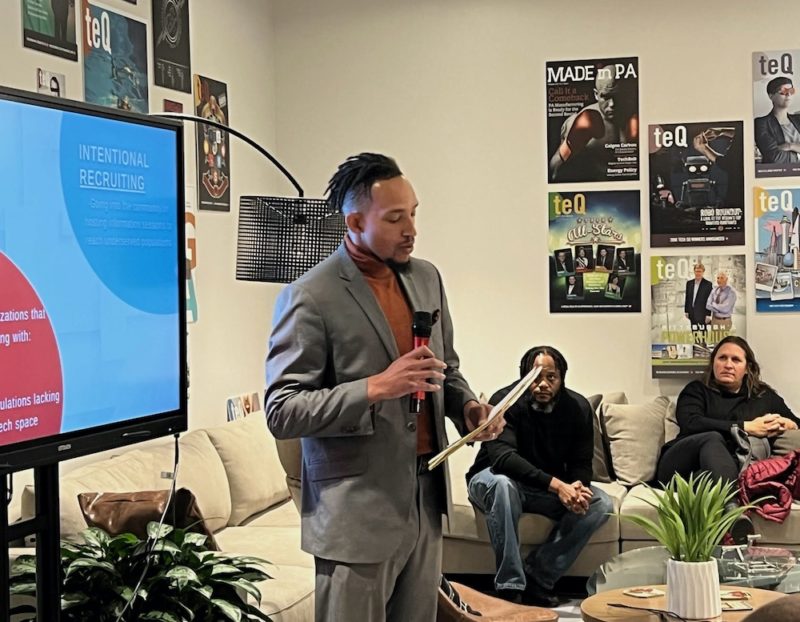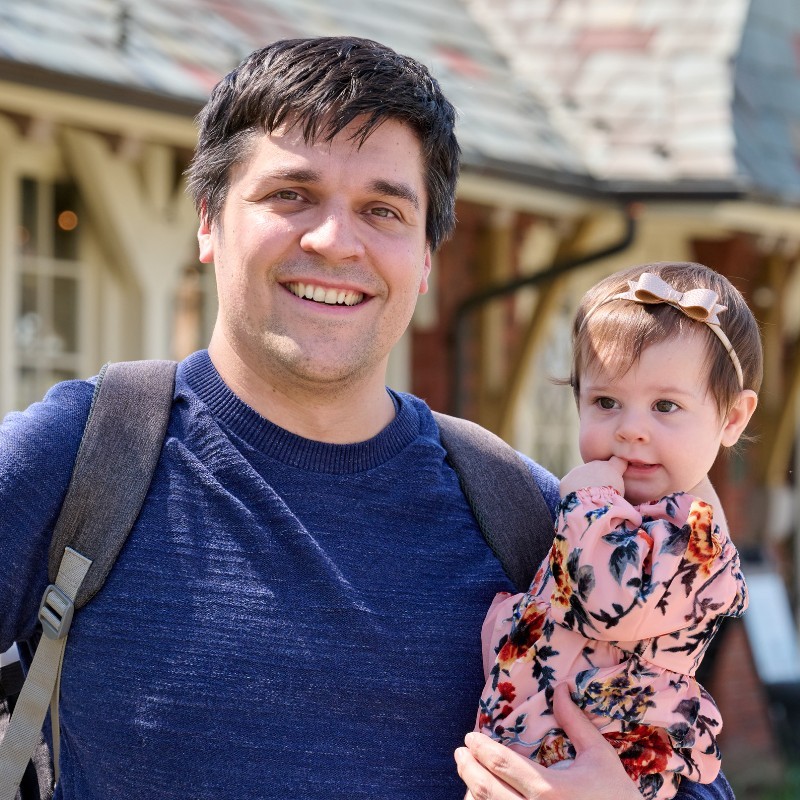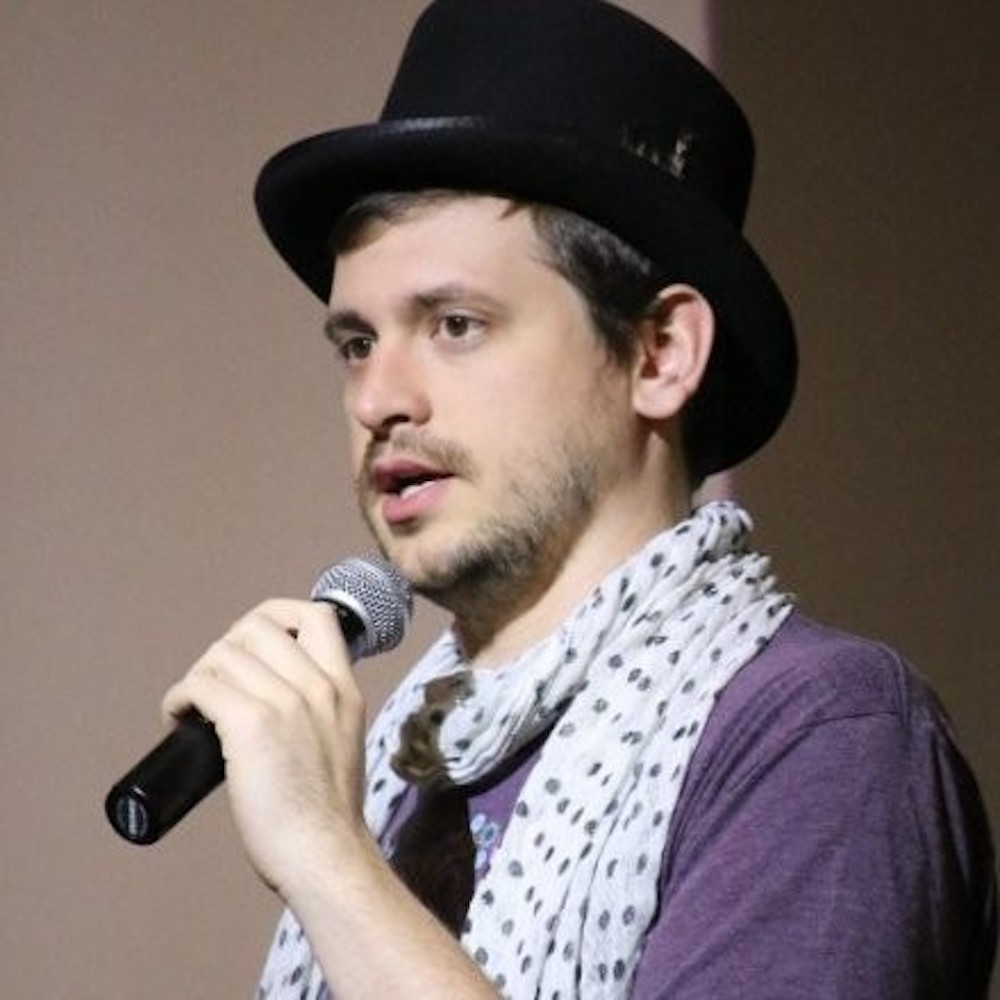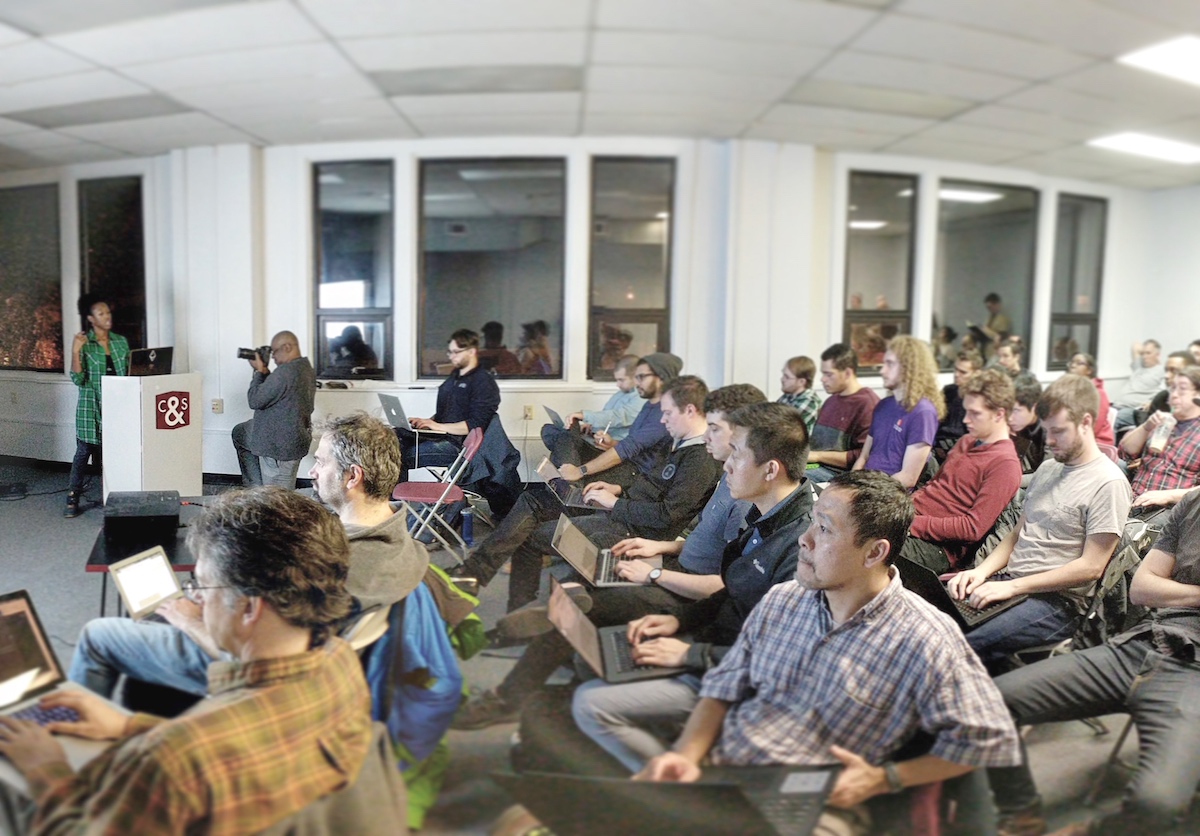In 2009, US Airways Flight 1549 crash-landed in the Hudson River. “Glee” was all the rage. “I Gotta Feeling” by the Black Eyed Peas was among the most played songs in the country.
Meanwhile, in Pittsburgh, tech was an increasingly big deal.
Carnegie Mellon University had been a secret cybersecurity hub for decades, and local companies had helped the US win the Space Race. But while Google had recently opened an office here, it hadn’t yet expanded to Bakery Square, which would ultimately lead it to the Big Tech transformation we know today.
2009 also happened to be the year Technical.ly was born just a few hundred miles away.
The publication started out by reporting exclusively on the tech and startup scene in Philadelphia, where we were founded. In 2012, we expanded to Baltimore, then DC and Delaware. Following a few pop-up reporting projects in Pittsburgh — including Open Data PGH, focused on the region’s open data initiatives, in 2018 — we began reporting here full time in 2021.
In honor of what we hope is your favorite local tech publication’s 15th anniversary, we asked where members of the Pittsburgh tech sector were 15 years ago. Some people were CEOs, others were in school or considering completely different careers.
Here’s what five current tech leaders told us about their memories from that time — plus, what a few of them hope for the next 15 years. These responses have been lightly edited for clarity or length.
412 Venture Fund Managing Partner Ilana Diamond
Fifteen years ago I was running a consumer electronics company about a year away from selling it to a larger international company in the industry.
My memory of that time is being one of very few female CEOs leading tech companies in the region. When we were raising capital to spin out a new technology, our management team reported that one of the top questions they were asked by potential investors was “Who really runs the company?”
Fortyx80 Assistant Director of Talent Development and Apprenticeships Tarelle Irwin

Fifteen years ago I was in college, not looking to work in tech at all. My focus was on my track career while studying psychology and business.
(More on his winding career trajectory here.)
Advanced Robotics for Manufacturing Institute Senior Outreach Manager Livia Rice
Fifteen years ago, I was in high school and planned to go to school for creative writing or dance. Tech, particularly robotics, as a career wasn’t on my mind at all.
Pittsburgh tech has evolved greatly even in just the past few years, let alone the past 15!
When I started college in 2013, I didn’t think of Pittsburgh as a tech industry hub. I did think of it as an educational hub for technology careers, but not as a place for a career in tech. It was around 2016-2017 that I started to see more of a technology industry in the city.
BSidesPGH organizer and Carnegie Mellon University Security Operations Manager and Andrew Gish-Johnson

Fifteen years ago, I’d probably just transitioned into full-time cybersecurity work. There wasn’t a cybersecurity role at US Steel at the time. I was a BlackBerry Enterprise admin that also managed firewalls and proxies. My colleague and I detected a network breach at US Steel, reported it, and then we became the security team.
I was finishing up my telecommunications masters at Pitt. So I probably had my head down finishing my degree. My head was buried in books.
Code & Supply Managing Director Colin Dean

I moved to Pittsburgh from an hour north 16 years ago. I immediately got involved in the nascent meetup scene. Meetup.com was still pretty new, yet its exploding growth enabled gathering that remains aspirational for the long tail of a pandemic era. I’d meet new people at events at meeting-friendly restaurants, corporate offices and public libraries. I wanted to learn new things with new people to share their expertise and experience.
I hosted Pittsburgh’s 2600 meetup at the Beehive with Jon Daniel. Jon and I took over the Pittsburgh PHP Users’ Group — PGHPHPUG — after its organizer Nick Zographos moved away. In 2009, Sean McCune and Jennifer Payne restarted the Ruby group under the Ruby Brigade banner. It met often at Vivisimo, a company I worked at starting in 2009 that was eventually acquired by IBM in 2012 and turned into an IBM Watson office in 2014. The Chicago Ruby scene’s Ruby on Rails kicked the Rust Belt community into overdrive. In the mid-2010s, Pittsburgh became a low-key pillar of the nascent Rust scene with several key contributors to its ecosystem located here. Code & Supply, the events and community organization I’ve helped run since 2013, grew out of the meetup scene and helped many meetup organizers attempt to keep momentum while giving them a break. We opened our own events space funded initially by conference surplus revenue and sustained by members, including people who used it as a coworking space.
We still have work to do; community building is an exercise in continuous improvement and continuous delivery. That’s not a mandate for just C&S. It’s on all of us in the Pittsburgh tech community. As the Pittsburgh tech scene produces meaningful companies building on its foundation in education, healthcare, and robotics, our community — we technologists as individual contributors — must invest and reinvest our funds and our time in expanding beyond the boundaries of our organizations. As my friend Kelauni Jasmyn of Black Tech Nation says, we must “write the checks” to founders and community leaders who build the community of tech workers.
There are bubbles of community organizations isolated from each other. I want to see more of these bubbles merge. I want C&S to be a part of that growing bubble.
What were you doing 15 years ago? And how do you think Pittsburgh’s tech ecosystem has changed? Email pittsburgh@technical.ly to share your memories.







